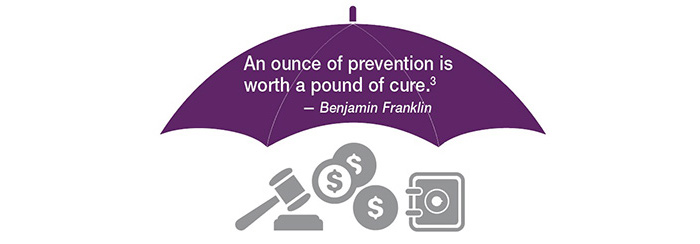Do You Need an Umbrella?
Getting caught in the rain without an umbrella can be an unpleasant experience. Getting caught without appropriate insurance coverage can be more than unpleasant — it could damage your hard-earned financial stability. Having an umbrella policy might make the difference between getting a little "wet" financially and facing a financial downpour.
Another Layer of Protection
Civil lawsuits have dropped in recent years.1 That's the good news. The bad news is that American society is still litigious, and some legal judgments seem excessive. Injuries related to icy walkways, a swimming pool, a dog bite, or an auto accident could lead to a personal liability lawsuit. If you entertain often, employ workers in your home, or have teenagers who drive, you may have additional exposure.
Standard homeowners and auto insurance policies generally cover personal liability, but you may not have enough coverage to protect your income and assets in the event of a high-dollar judgment. That's when umbrella insurance could be a big help, providing additional coverage up to policy limits.
Typically, you can obtain $1 million in coverage for a couple hundred dollars annually; higher coverage amounts can be even more cost-effective.2 Before adding umbrella insurance, however, you generally must purchase the maximum liability coverage on your homeowners and automobile policies, which serve as a deductible for the umbrella policy.

On top of the liability coverage amount, an umbrella policy may help pay legal expenses and compensation for time off from work to defend yourself in court. It might also cover situations not included in standard homeowners policies, such as libel, slander, invasion of privacy, and defamation of character.
Umbrella insurance is not just for wealthy households; it is also appropriate for middle-income families with substantial home equity, retirement savings, and current and future income that could be used to satisfy a large jury award. (Qualified retirement plan assets may have some protection from creditors under federal and/or state law, depending on the type of plan and jurisdiction, but you would still be liable for any judgments.)
It might be helpful to consider your assets, your potential exposure, and your acceptable risks. Protecting yourself with an umbrella policy could help avoid expensive consequences down the road.

